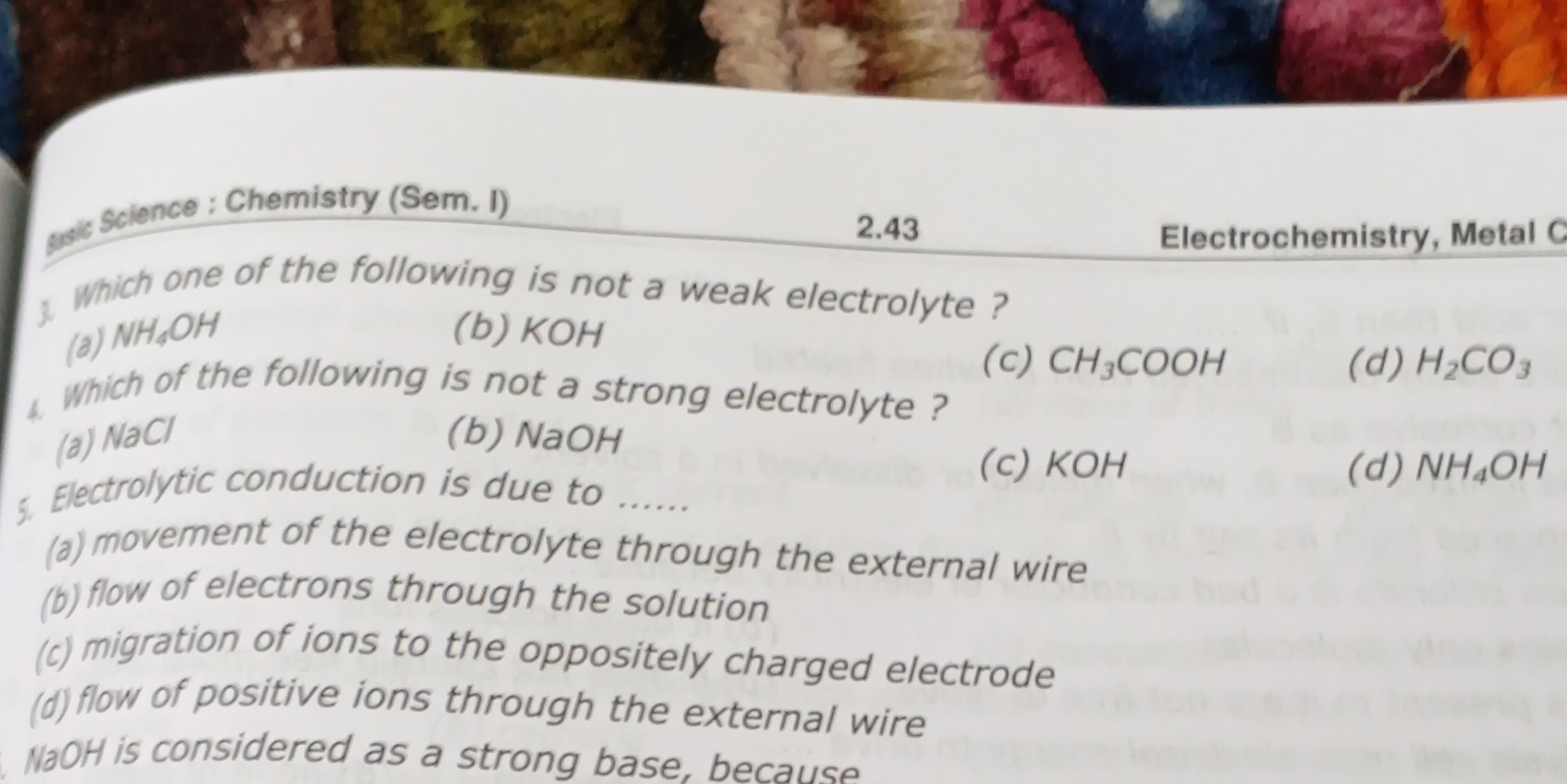Which one of the following is not a weak electrolyte? (a) NH4OH (b) KOH (c) CH3COOH (d) H2CO3 Which of the following is not a strong electrolyte? (a) NaCl (b) KOH (c) NaOH (d) NH4O... Which one of the following is not a weak electrolyte? (a) NH4OH (b) KOH (c) CH3COOH (d) H2CO3 Which of the following is not a strong electrolyte? (a) NaCl (b) KOH (c) NaOH (d) NH4OH Electrolytic conduction is due to ... (a) movement of the electrolyte through the external wire (b) flow of electrons through the solution (c) migration of ions to the oppositely charged electrode (d) flow of positive ions through the external wire

Understand the Problem
The question is asking which substances are classified as weak or strong electrolytes and inquiring about the nature of electrolytic conduction. It involves identifying specific electrolytes based on their strength and understanding the mechanism of conduction in an electrolytic solution.
Answer
KOH is not a weak electrolyte, NH4OH is not a strong electrolyte, conduction is due to ion migration.
The final answer is KOH is not a weak electrolyte, NH4OH is not a strong electrolyte, electrolytic conduction is due to the migration of ions to the oppositely charged electrode.
Answer for screen readers
The final answer is KOH is not a weak electrolyte, NH4OH is not a strong electrolyte, electrolytic conduction is due to the migration of ions to the oppositely charged electrode.
More Information
KOH is a strong base and therefore a strong electrolyte. NH4OH partially dissociates in solution, making it a weak electrolyte. Electrolytic conduction involves ions moving towards electrodes, unlike electron flow which occurs in metallic conductors.
Sources
AI-generated content may contain errors. Please verify critical information